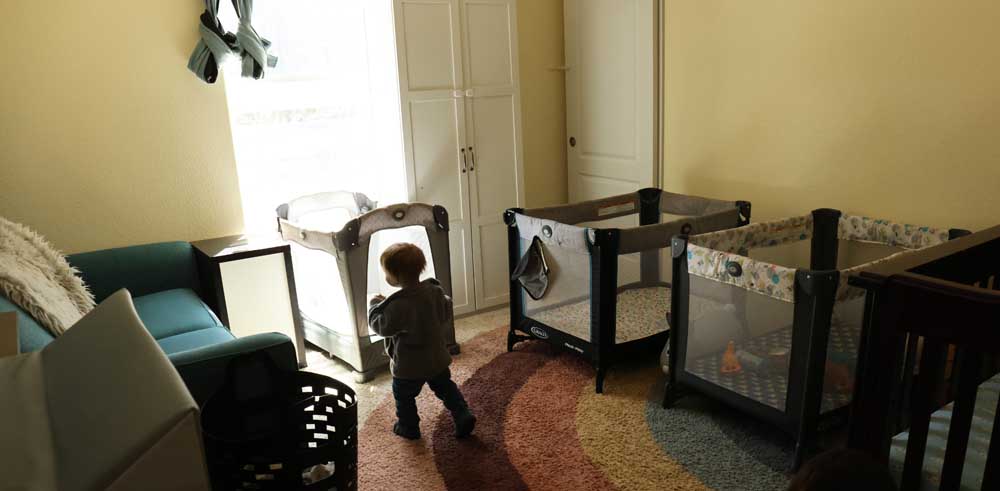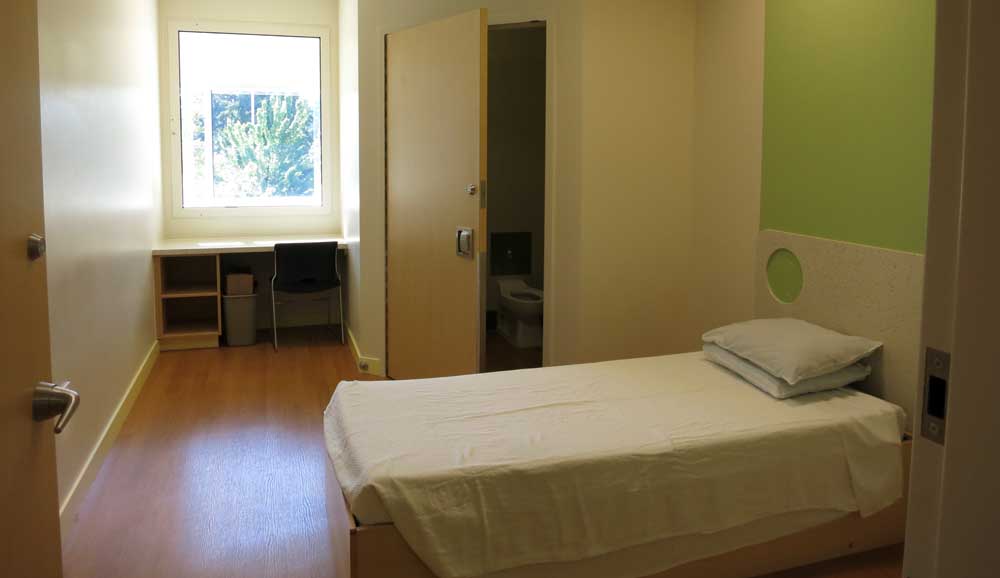NeighborImpact and COCC open hundreds of new child care slots in Central Oregon
Published 8:30 am Friday, April 19, 2024

- Finn Rohrich, 20 months, explores the nap room at In the Pines Learning Center, which received assistance and funding from NeighborImpact, in La Pine on Wednesday.
During the pandemic, hundreds of child care options in Central Oregon closed.
In 2021, NeighborImpact, partnering with Central Oregon Community College, among others, found funding to teach new providers, assist current providers and open new child care slots, both in the home and in commercial settings.
Trending
Now a few years into the process, and with more funding expected, officials say they are pleased with the impact that’s been made but also say there is a long way to go.
Hannah Kuehl is part of NeighborImpact’s child care resources team. In 2022, NeighborImpact received an $8.2 million grant that has been used to provide funding and educational opportunities for child care providers.
“We’re excited about how successful it’s been,” said Kuehl. “We’ve done a really good job at getting preschool slots up and running quickly, so that’s a huge benefit and that’s helped to alleviate a lot of those caring needs.”
More Information
Child care can be found in Central Oregon using the NeighborImpact map, and can be found statewide at the Find Childcare Oregon website.
Trending
Expanding Central Oregon child care
NeighborImpact’s goal is to create 1,400 new child care openings across Central Oregon with the grant funding. The funding has already helped create 717 new openings by expanding current child care centers and opening new ones.
Having opened many spaces for preschoolers, NeighborImpact is now focusing on spaces for infants and toddlers, which can be more challenging due to the need for more staff and other regulations.
“For every one child care slot, there’s three children that need that space,” said Kuehl. “The biggest barriers have been finding locations that are affordable and that meet licensing regulations.”
After applying, providers met with NeighborImpact organizers to figure out feasible plans to expand their businesses. That could include helping to find extra staff, which is another large barrier, or working on improvements to their building. Each provider had different needs, so plans were individualized.
Many buildings don’t meet the strict licensing regulations for child care, making conversations about how to alter a building to meet those regulations important.
“(We’re) trying to target those groups that don’t have as much access,” said Kuehl. There are projects in Bend, Redmond, Sisters, Madras, Prineville and La Pine.
NeighborImpact has also made inroads with other groups that have provided assistance, including city planning and zoning officials, landlords and the Bend Chamber of Commerce.
The chamber has worked with NeighborImpact since 2018 alongside other organizations such as COCC, said Katy Brooks, CEO. As a group, they lobbied Deschutes County for use of the American Rescue Plan Act funds in 2021. The county granted $6.6 million of those funds to expand access to child care and train workers in child care and early education. The funding went to several organizations, including NeighborImpact, COCC, East Cascade Works and Mountain Star Relief Nursery.
Brooks is working with others to expand child care options and bring more people into the field. She is also working on advocacy at the state level.
“It takes a tremendous amount of coordinated effort to even make a dent in what is wrong with the child care field right now,” she said. “I think it’s about time that our country started thinking about child care as public education.”
Kuehl plans for this to be a long-term project that continues supporting providers even when the grant funding has been used. When additional funding becomes available, she plans to connect providers with the grants.
Making sure child care is affordable for working families is also a barrier Kuehl wants to focus on.
Learning the child care business
Kathryn Brown is the manager of the Early Child Care Business Accelerator program at COCC, which ran courses to help people begin child care centers. It is run through the college’s Small Business Development Center.
The NeighborImpact grant is currently funding COCC’s program. Brown considers herself Kuehl’s counterpart on the college side.
People looking to open a home-based center or a commercial child care center had the opportunity to take seven-week courses combining business, licensing and child care knowledge. There is a grant opportunity if participants completed the course and finished all requirements to help them launch their centers.
“At the end of their course, they have a business plan, they have clear financial projection, they have clear support to become state licensed,” Brown said of the home-based course.
The home-based course administered 53 grants and opened more than 530 child care slots in Central Oregon. The commercial center-based course administered three grants, though several more are in the works, and has opened over 160 child care slots so far.
The American Rescue Plan Act funding from Bend, Sisters and Deschutes County helped launch the program, though now the NeighborImpact grant is providing funding. The courses for home-based providers will continue through at least December 2025, while courses for commercial providers have recently concluded.
Opening a commercial center is a more daunting process than a home-based practice.
“The problem with opening a center is that it’s no longer just licensing rules. Now you have to abide by city zoning, city building code, fire license safety, and that has been a major barrier,” Brown said.
Most of the commercial spaces don’t have access to a yard or green space, are not permitted for child care or don’t have fire sprinklers. Sprinklers are necessary if providers are taking care of children under age 2½. Implementing sprinklers can run up to $300,000, she said.
“We’ve really helped alleviate the preschool desert,” said Brown. “There’s so many more systemic barriers to be able to offer infant and toddler care, and that’s why I think we have to continue the home-based programs because that is where most of our infant and toddler care is happening.”
She said providers have been glad to have help in navigating zoning and permitting issues.
Brown is working to expand the program across the state and will continue to support providers in opening centers.
Future funding includes a $50 million state grant for infrastructure that will be overseen by Business Oregon. The funding will be available in spring 2024 and spring 2025 to providers who apply.
COCC’s Madras campus expanding medical education, will help Jefferson County








